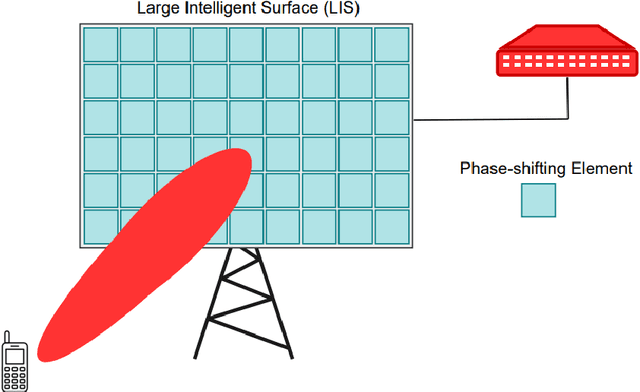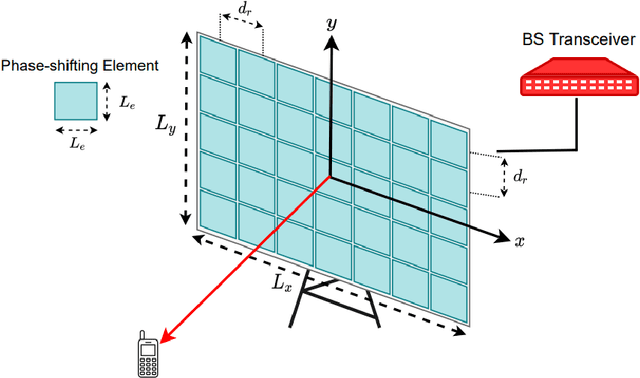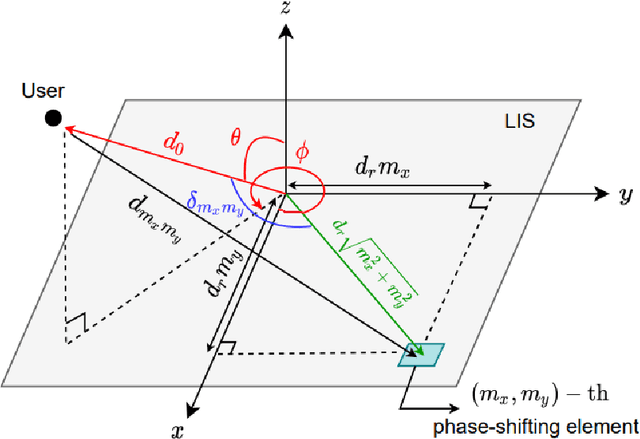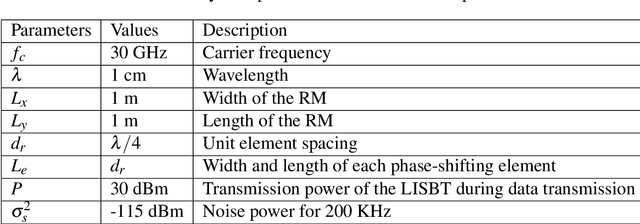Parametric Channel Model Estimation for Large Intelligent Surface-Based Transceiver-assisted Communication System
Paper and Code
Apr 05, 2022



The number of connected mobile devices and the amount of data traffic through these devices are expected to grow many-fold in future communication networks. To support the scale of this huge data traffic, more and more base stations and wireless terminals are required to be deployed in existing networks. Nevertheless, practically deploying a large number of base stations having massive antenna arrays will substantially increase the hardware cost and power consumption of the network. A promising approach for enhancing the coverage and rate of wireless communication systems is the large intelligent surface-based transceiver (LISBT), which uses a spatially continuous surface for signal transmission and receiving. A typical LIS consists of a planar array having a large number of reflecting metamaterial elements (e.g., low-cost printed dipoles), each of which could act as a phase shift. It is also considered to be a cost effective and energy efficient solution. Accurate channel state information (CSI) in LISBT-assisted wireless communication systems is critical for achieving these goals. In this paper, we propose a channel estimation scheme based on the physical parameters of the system. that requires only five pilot signals to perfectly estimate the channel parameters assuming there is no noise at the receiver. In the presence of noise, we propose an iterative estimation algorithm that decreases the channel estimation error due to noise. The proposed scheme's training overhead and computational cost do not grow with the number of antennas, unlike previous work on enormous multiple-input multiple-output (MIMO). The channel estimate scheme based on the physical properties of the Large intelligent surface-based transceiver (LISBT)-assisted wireless communication systems is the subject of our future study.
 Add to Chrome
Add to Chrome Add to Firefox
Add to Firefox Add to Edge
Add to Edge